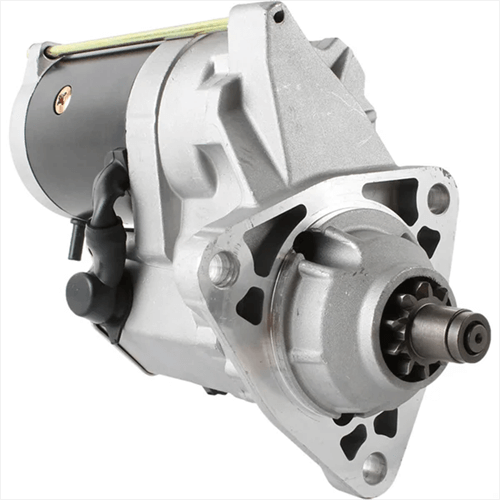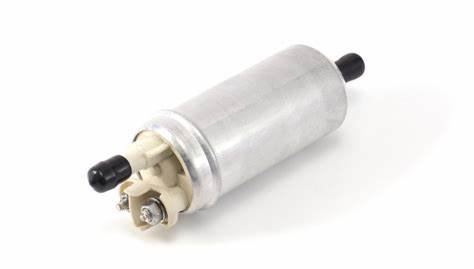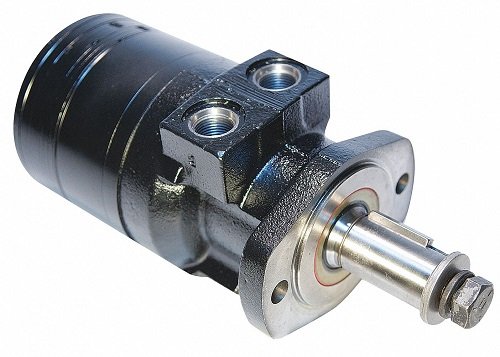When it comes to starting an engine efficiently, the electric starter plays an indispensable role. Whether you’re dealing with cars, motorcycles, boats, lawnmowers, or industrial machinery, a reliable electric starter motor ensures a smooth and effortless ignition process.
In this comprehensive guide, we’ll explore how an electric starter works, its benefits, common issues, maintenance tips, and how to choose the best one for your needs. If you’re looking for a high-quality replacement electric starter, we’ll also discuss key factors to consider before making a purchase.
What Is an Electric Starter?
An electric starter is a device that initiates the operation of an internal combustion engine. It works by drawing electrical power from a battery and converting it into mechanical energy to turn the engine’s flywheel. Before the invention of the electric starter motor, engines were started manually, often requiring significant physical effort.
Today, nearly all modern vehicles and machines use electric starter motors for engines, making the starting process quick and hassle-free.
How Does an Electric Starter Work?
The electric starter motor functions through a coordinated system of electrical and mechanical components. Here’s a step-by-step breakdown:
- Activation – When you turn the key or press the start button, an electrical signal is sent to the starter solenoid.
- Engagement – The solenoid activates the starter motor, which then pushes a small pinion gear forward to engage with the flywheel.
- Cranking the Engine – The starter motor for internal combustion engines spins the flywheel, allowing the engine to begin its combustion cycle.
- Disengagement – Once the engine is running, the starter solenoid automatically disengages the starter motor to prevent damage.
This entire process takes only a few seconds but is critical for ensuring a smooth and efficient start.
Key Benefits of an Electric Starter
Upgrading to a high-quality electric starter replacement can significantly enhance the performance of your vehicle or equipment. Here are some key benefits:
1. Convenience and Efficiency
An electric start system eliminates the need for manual effort, allowing users to start engines effortlessly with the turn of a key or push of a button.
2. Reliable Performance in All Conditions
Unlike manual starting methods, an electric starter motor for small engines works efficiently in extreme temperatures, ensuring consistent performance in hot and cold weather.
3. Increased Safety
Older manual starting methods, like pull-starts or hand cranks, pose risks of injury due to kickbacks. A starter motor for diesel engines eliminates these risks, making the process safer and more reliable.
4. Extended Engine Longevity
A properly functioning electric starter ensures a smoother startup process, reducing stress on engine components and enhancing longevity.
Common Problems with Electric Starters and How to Fix Them
Despite their efficiency, electric starter motors for vehicles can develop issues over time. Here are some common problems and their solutions:
1. Engine Won’t Start (No Cranking Sound)
- Possible Causes: Dead battery, faulty ignition switch, broken wiring.
- Solution: Check the battery voltage, inspect the ignition switch, and examine wiring connections.
2. Clicking Sound but No Start
- Possible Causes: Weak battery, corroded battery terminals, damaged solenoid.
- Solution: Charge or replace the battery, clean battery terminals, and test the solenoid.
3. Grinding Noise When Starting
- Possible Causes: Worn-out pinion gear, misaligned starter motor, damaged flywheel teeth.
- Solution: Inspect the flywheel and replace damaged parts if necessary.
4. Starter Motor Runs Continuously
- Possible Causes: Faulty solenoid, defective ignition switch, jammed starter relay.
- Solution: Replace the solenoid or ignition switch and check the relay for defects.
For high-quality starter motor replacements, check out DEG Parts, a trusted supplier of engine components.
Maintenance Tips for a Long-Lasting Electric Starter
Keeping your electric starter motor in good condition is crucial for long-term performance. Follow these maintenance tips:
1. Regularly Inspect Battery Health
A weak or failing battery can prevent the electric starter from functioning properly. Ensure that the battery is fully charged and replace it when necessary.
2. Clean Electrical Connections
Dirty or corroded battery terminals can disrupt the flow of electricity. Use a wire brush to clean any buildup and apply anti-corrosion spray.
3. Check and Replace Worn-Out Parts
Components like the starter solenoid, pinion gear, and brushes wear out over time. Inspect these parts regularly and replace them as needed.
4. Lubricate Moving Parts
Applying lubricant to the starter motor shaft and gears helps reduce friction and extends the lifespan of your starter.
5. Listen for Unusual Sounds
If you hear grinding, clicking, or whining noises during startup, have your electric starter inspected immediately to prevent further damage.
For high-quality replacement starter motors, visit DEG Parts.
Choosing the Right Electric Starter for Your Vehicle or Equipment
When selecting an electric starter motor, consider the following factors:
1. Compatibility
Ensure the starter motor for engines matches your vehicle’s make, model, and engine size. Using an incompatible starter can lead to performance issues.
2. Power and Efficiency
Choose a high-torque electric starter if you operate in cold climates or use a diesel engine, as these require more cranking power.
3. Brand Reputation and Warranty
Opt for well-known brands with positive customer reviews. A warranty is also important to protect your investment.
4. Durability and Weather Resistance
For outdoor machinery, consider weather-resistant starter motors that can withstand moisture and extreme temperatures.
For a wide selection of electric starters, check out DEG Parts, your go-to source for high-performance engine components.
Final Thoughts: Why an Electric Starter Is a Must-Have
The electric starter is a crucial component that ensures hassle-free engine ignition. Whether you’re using it for personal vehicles, industrial equipment, or outdoor power tools, a reliable starter motor for small engines can save you time, effort, and money in the long run.
By understanding how an electric starter motor works, recognizing common issues, and following proper maintenance practices, you can extend its lifespan and enjoy smooth performance for years to come.
If you’re looking for a replacement electric starter or need professional advice, visit DEG Parts for high-quality components and expert guidance.
Investing in a top-tier electric starter ensures that your engine starts reliably every time, keeping you moving without unnecessary delays.





